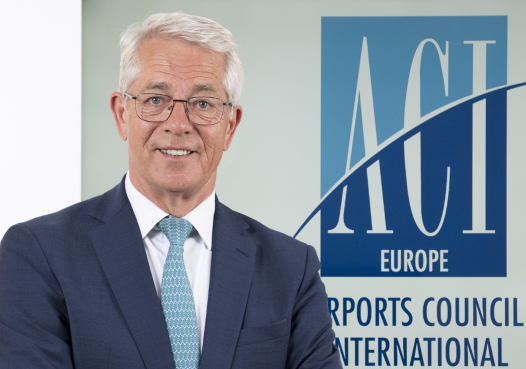
Report warns of widening air connectivity gap
21 June 2025
by Jonathan Andrews
Europe’s airports may be welcoming more passengers than ever, but air connectivity continues to lag with potentially severe implications for economic growth, cohesion and strategic autonomy.
That’s the warning from ACI EUROPE’s 2025 Airport Industry Connectivity Report, unveiled during the 35th Annual Congress and General Assembly in Athens.
The report shows that while passenger numbers fully recovered in 2024 and have grown further in 2025, overall air connectivity, combining both direct and indirect connection, remains nine percent below 2019 levels. Direct connectivity from full-service carriers has dropped 15 percent since the pandemic, while low-cost carriers have increased their share by 19 percent.
Olivier Jankovec, Director General of ACI EUROPE, said the findings underlined the need for immediate political attention.
“The data we present today is unequivocal: Europe urgently needs a strategic policy reset that places air connectivity as a key pillar of its competitiveness, cohesion and strategic autonomy agendas,” he said.
He warned that this connectivity gap is already having tangible consequences for travellers and economies.
“With every 10 percent increase in direct air connectivity linked to a 0.5 percent rise in GDP per capita, it is European citizens who ultimately pay the price,” he said. “Our policy makers must future proof the air connectivity that is inherent to our European way of life and global outreach.”
While some countries, including Greece (up 35 percent) and Portugal (up 10 percent), have exceeded 2019 connectivity levels, thirteen EU+ nations have seen double-digit declines. The steepest losses were reported in Sweden, Finland, Austria and Germany, with connectivity falls of more than 29 percent, largely attributed to punitive aviation taxes and shifting travel patterns. Non-EU markets such as Uzbekistan (up 73 percent) and Turkey (up 36 percent) are seeing significant gains.
At an airport level, Istanbul now tops Europe’s direct and hub connectivity rankings, outpacing pre-pandemic leaders Frankfurt and Paris CDG. Its growth reflects the rapid expansion of Turkish Airlines, a supportive policy environment and strong strategic geography. Other airports exceeding pre-pandemic direct connectivity levels include Athens (up 24 percent), Antalya (up 29 percent), and Rome Fiumicino (up 3 percent).
Schulte elected ACI EUROPE President
Alongside the report’s release, ACI EUROPE confirmed a new leadership team. Dr Stefan Schulte (pictured), CEO of Fraport, has been elected President of the association, succeeding SEA Milan Airports CEO Armando Brunini.
“Airports are vital for Europe’s prosperity. A strong ACI EUROPE is essential to ensure that we airports can invest in infrastructure, compete globally, innovate for customer security, and meet climate targets,” said Schulte.
“As the new President of ACI EUROPE, I am committed to championing the vital role airports play in the prosperity of societies and economies across Europe. I will do my utmost to best represent our airport family, from large to small, from hub airports to major city airports to smaller regional airports, while promoting everyone’s interests as much as possible.”
New board members include senior airport leaders from the United Kingdom, Turkey, France, Israel and Romania. Those appointed for a second term include executives from Norway, Greece and Estonia.
2025 best airport awards spotlight resilience and innovation
The association also celebrated the winners of the 2025 ACI EUROPE Best Airport Awards, highlighting the sector’s adaptability in the face of growth-related pressures.
Ukrainian airports received a special Award for Exceptional Resilience, recognising efforts to preserve infrastructure and staff readiness despite closed airspace and zero revenues.
Munich Airport won the Digital Transformation Award for its deployment of service robots and AI-supported turnaround management.
Maastricht-Aachen Airport was recognised with the Eco-Innovation Award for its “Electrifly” project, a fully electric door-to-door travel experience.
Lyon Airport received the HR Excellence Award for its work on diversity, equity and inclusion, while Ella Soltani of To70 Aviation was named World Business Partner of the Year.
Rome Fiumicino was again named best in the over 40 million passenger category, praised for its renewable energy programme and data-led management strategy. Other category winners included Athens, Hamburg, Vasil Levski Sofia, and Cork airports.
Image: ACI













